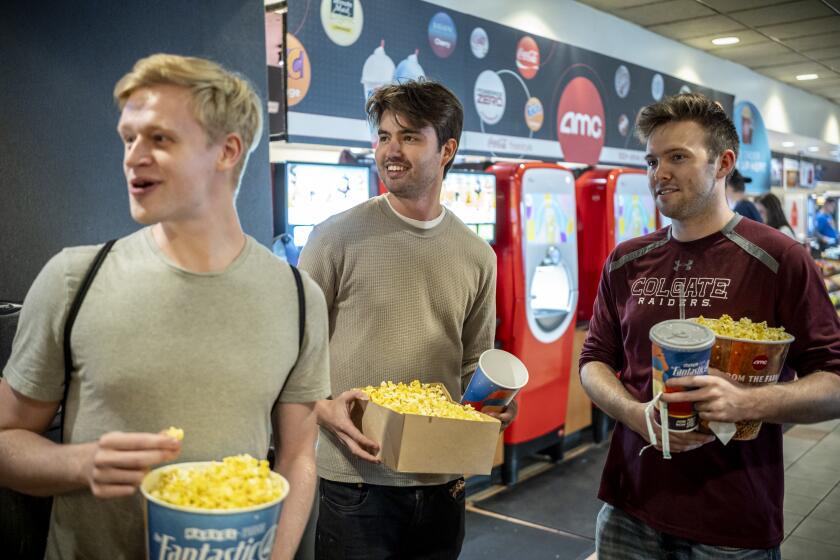
The Rise of AMC A-List as a Cultural Phenomenon
In Los Angeles, where dating profiles often feature dog photos, gym selfies, or promises of adventure, one man stands out with a unique hook: his membership in the AMC A-List program. Joel Lingaur, a 25-year-old actor based in Culver City, uses his A-List status as a conversation starter on Hinge. He says it shows he’s into movies without coming across as a "film bro," which he finds pretentious. For many young people in L.A., A-List has become a quirky and recognizable trait to include on dating profiles.
AMC A-List is the highest tier of the theater chain’s loyalty program, allowing members to see up to four movies a week for around $20 a month, depending on location. In California, where ticket prices are higher, the cost is $27.99 per month. Members enjoy benefits like no extra charge for Imax or other premium formats. Launched in 2018, the program was designed to compete with MoviePass, a short-lived service that allowed unlimited movie viewings for a low fee. At the time, AMC and other theater chains were struggling with declining attendance, a trend that worsened during the pandemic.
Despite AMC’s financial struggles—nearly $4 billion in debt, reported losses, and a stock price hovering around $3—the A-List program has become a bright spot. With nearly 1 million members, it proves that younger generations still value moviegoing. A-Listers are not just passive consumers; they actively promote the program through social media, memes, and even merchandise like Christmas tree toppers and cross-stitch patterns.
A Cult-Like Following
The A-List phenomenon has taken on a life of its own, creating a sense of community among members. It's more than just a subscription—it's a badge of honor. Many A-Listers, like 24-year-old Peter Gerard, can recite the script from an AMC advertisement featuring Nicole Kidman. The ad, which became an internet sensation, features Kidman saying, “Heartbreak feels good in a place like this.” While the campaign was meant to boost post-pandemic attendance, it also sparked memes, spoofs, and even an SNL sketch.
Carrie Trotter, AMC’s vice president of loyalty and brand marketing, says the online community has become a powerful marketing tool. The company has embraced the trend, selling merchandise with “The Pledge” inscribed on it and engaging with fans on social media. This cultural relevance extends beyond just the ads. Gen Z and millennials have embraced A-List, making it the fastest-growing audience segment within the program. According to AMC, A-List members are younger, more diverse, and skew male compared to other loyalty programs.
The Power of Community
For many, A-List isn't just about saving money on tickets. It's about belonging to a community that shares a passion for movies. Adora Adeyemi, a 22-year-old A-List subscriber, sees it as a genuine signifier of caring about movies. She compares it to the way fans once supported bands like the Beatles. “Even back to the days of the Beatles or what have you, it's not a new thing to want to rep what you care about,” she said.
Dan Murrell, a film critic and box office analyst, calls A-List a “perfect storm” that struck at the right moment. The return to theaters aligned with a generation searching for community after years of isolation during the pandemic. It also coincided with AMC’s rise as a meme stock, when retail investors drove its share price up dramatically in 2021. CEO Adam Aron embraced the meme stock status, and the same kind of attention began to follow A-List and the Kidman ad.
A-List in Los Angeles
Los Angeles, known as a movie town, has a particularly strong A-List culture. Many members say the service is available nationwide, but the sense of community is strongest in L.A. Some A-Listers, like Ellie Bambach, attend both AMC and independent theaters, enjoying the classics at places like New Beverly Cinema and the Vista Theatre, owned by Quentin Tarantino.
There’s also a unique subset of A-Listers in L.A. who use their membership to justify parking fees at malls like the Grove or Westfield Century City. They register for showings just to validate their expensive parking tickets, though they insist they’re still in it for the movies. As Ellis Jones, a 25-year-old A-Lister, put it, “L.A.’s a movie town… so if you like movies, I don’t see how you could not have this at this point.”


